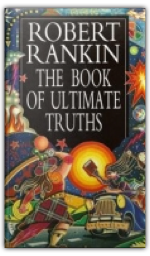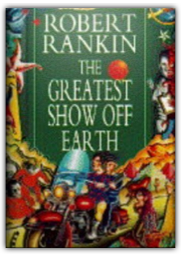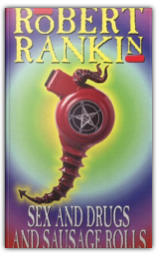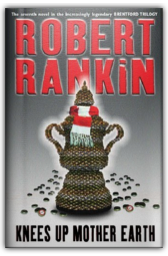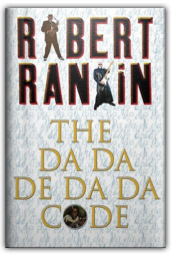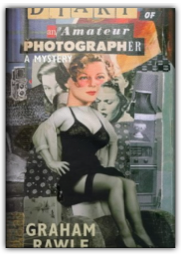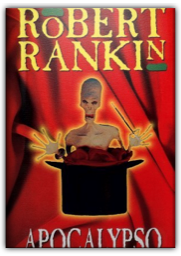 Apocalypso
Robert Rankin
Apocalypso
Robert Rankin
Robert Rankin's comic fantasies have a laddish good humour which rely heavily, if not excessively, on teasing, class and beer. His protagonists are always forced to compete in a world in which someone else has a silver spoon in their mouth; they muddle their way through his amiably Heath-Robinsonish plots by a mixture of chutzpah, bluster and endurance. Porrig, hero of Apocalypso has a bad attitude that makes even his parents dislike him, but he inherits a shop from a conjuror uncle—a shop which serves as a gateway to other worlds. Not only has he to redeem his uncle from damnation, he also has to save the world from an unpleasant alien vegetable with the power to cloud human minds. Amid all this, we find out what Nelson's Column is for, why railway ticket clerks take so long to sell tickets and the secret that lurks under Mornington Crescent Underground Station. Rankin's humour is a scatter-shot that misses targets as often as it hits, but his unabashed preparedness to use old jokes and the crudest of slapstick is part of a shaggy-dog enthusiasm that is more endearing than otherwise. —Roz Kaveney 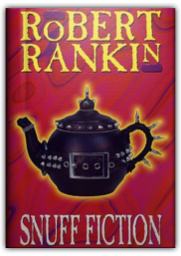 Snuff Fiction
Robert Rankin
Snuff Fiction
Robert Rankin
Ever since his comic-sinister debut The Antipope—published for the first time in 1981, or 2 BD(Before Discworld)—Robert Rankin has repeatedly returned to that most haunted region of mythic England: Brentford. Snuff Fiction is the biography of local entrepreneur Doveston (1949-2008) as seen by lifelong friend and enemy Edwin, beginning with richly comic evocations of 1950s schoolboy folklore. Like lurking water-vipers in the park: "If you took a piddle in the boating lake, they would swim up the stream of pee and enter your knob." Doveston's insanely ambitious schemes begin with house-wrecking dope parties and the doomed 1967 Brentstock rock festival, with Edwin the scapegoat for every disaster. Those resisting the inexorable Doveston rise to wealth and power have accidents involving dynamite. Presently he's making nefarious deals with our secret Government, culminating in a millennium party at Castle Doveston where celebrities like Michael Jackson meet sticky ends. Rankin produces a fascinating flow of misinformation about puberty, gypsies (native language Esperanto), yo-yos (is there a manoeuvre called "splitting the beaver"?), Brentford's many ethnic quarters (e.g. Mexican, Navajo, Kalahari Bushmen), rhyming slang (Richard= Richard Dadd= mad) and snuff-sniffing. The awful secret of the Millennium Bug is revealed. Uninhibitedly anarchic farce, full of bizarre verbal inventiveness and dreadful old jokes. Read it and sneeze. —David Langford 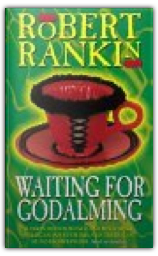 Waiting for Godalming
Robert Rankin
Waiting for Godalming
Robert Rankin
Robert Rankin's wondrously oddball fantasies have caused addicted readers' heads to spontaneously explode on five separate continents, most of them in Brentford. Some call him the Terry Pratchett of seedy suburbia, but only if they want a punch in the chops... 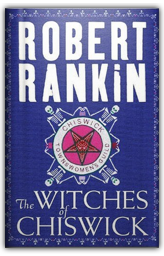 The Witches Of Chiswick
Robert Rankin
The Witches Of Chiswick
Robert Rankin
Robert Rankin's fondness for demented conspiracy theories is complicated by time travel in The Witches of Chiswick—which demonstrates again that everything you know is wrong, that Brentford is the true centre of the multiverse, and that nobody is quite as weird as Robert Rankin. |
 Made with Delicious Library
Made with Delicious Library
London, State zipflap congrotus delicious library Scott, Mike
